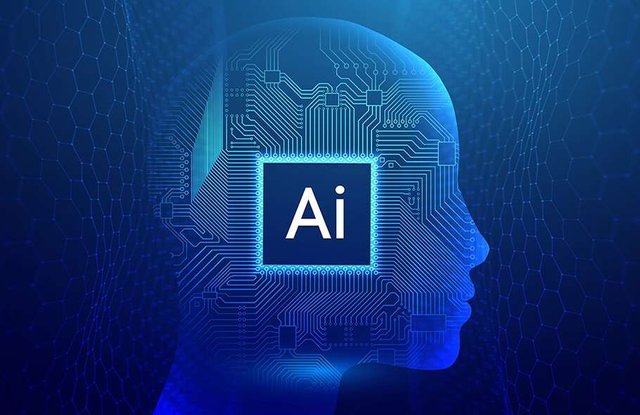10 Key Factors to Consider When Developing an AI Service Desk Solution
In today's fast-paced digital landscape, businesses are increasingly adopting Artificial Intelligence (AI) to enhance efficiency and improve customer experiences. One of the most powerful applications of AI is in the development of AI-powered service desk solutions. AI service desks are transforming how organizations handle support, resolve issues, and interact with customers.
However, developing an AI service desk solution that is both effective and sustainable involves more than just implementing advanced technologies. It requires careful planning, strategic thinking, and a clear understanding of the challenges and opportunities. In this blog, we will explore the 10 key factors you must consider when developing an AI service desk solution to ensure it delivers value, increases productivity, and enhances customer satisfaction.
What is an AI Service Desk Solution?
An AI Service Desk Solution is an automated support system that uses artificial intelligence to manage and resolve customer service requests. By integrating technologies like Natural Language Processing (NLP), machine learning, and chatbots, it enables businesses to provide faster, more efficient customer support. These solutions can handle tasks such as ticket creation, issue diagnosis, and self-service resolution, all while learning from past interactions to improve their responses over time. AI service desks reduce the workload on human agents, streamline operations, and enhance the overall customer experience by providing quick, accurate, and personalized support.
1. Defining Clear Objectives and Use Cases
Before embarking on the development of an AI service desk solution, it’s crucial to define clear objectives and identify specific use cases. What are the key problems you want to solve? Are you aiming to reduce response times, automate ticket resolutions, or improve self-service capabilities?
Why it matters: A well-defined objective ensures the AI service desk solution is aligned with your organization’s needs and goals. It will guide your decision-making throughout the development process and help you track performance once the system is live.
2. Selecting the Right AI Technology
Choosing the right AI technologies for your service desk solution is a foundational factor. The core AI technologies commonly used in service desks include Natural Language Processing (NLP), Machine Learning (ML), and chatbots. These tools power self-service capabilities, automate responses, and analyze customer data.
Why it matters: The success of an AI service desk is highly dependent on the technology that powers it. Opting for the right tools ensures the solution can understand and process customer requests accurately, provide intelligent responses, and learn over time to improve efficiency.
3. Integration with Existing Systems
AI service desk solutions need to integrate seamlessly with your existing infrastructure, including Customer Relationship Management (CRM) software, IT service management tools, databases, and knowledge bases. This ensures that AI can access all necessary data and provide users with consistent and accurate information.
Why it matters: Integration minimizes friction between new and existing systems, reduces duplication of work, and ensures data consistency. A seamless connection between systems ensures the AI can offer more relevant and timely solutions, improving both internal workflows and customer satisfaction.
4. User-Centric Design
An AI service desk solution should be intuitive, user-friendly, and designed with the end user in mind. Whether your customers are employees, clients, or partners, the service desk interface should be easy to navigate and offer a smooth experience. The use of natural language interfaces, conversational chatbots, and clear workflows can significantly enhance user adoption.
Why it matters: User-centric design is key to ensuring that your AI service desk is adopted successfully. If customers find the interface cumbersome or hard to understand, they may be discouraged from using the system, leading to lower engagement and fewer support requests handled by AI.
5. Scalability and Flexibility
Scalability is critical when developing an AI service desk solution. Your AI system should be able to grow with your business. As your company expands, the volume of support requests will likely increase, and your AI service desk needs to be capable of handling higher loads, without compromising performance.
Why it matters: Building scalability into your AI service desk ensures that it can adapt to changing needs over time. Whether scaling up for more requests or introducing new features, a flexible AI system can accommodate future growth and technological advancements.
6. Data Privacy and Security
Handling customer data responsibly is crucial for maintaining trust and compliance. Your AI service desk will likely interact with sensitive information, and ensuring data privacy and security is a must. This includes implementing encryption, secure access controls, and compliance with relevant data protection regulations, such as GDPR.
Why it matters: A breach in data security can have serious consequences, including legal issues, financial loss, and reputational damage. Ensuring your AI service desk meets high standards for data security is not only a legal requirement but also a vital element in building trust with customers and users.
7. Machine Learning and Continuous Improvement
An AI service desk solution should not be static. To maximize its effectiveness, it needs to continually learn from interactions and improve over time. This requires integrating machine learning models that allow the system to identify patterns, predict issues, and offer more precise solutions based on historical data.
Why it matters: Continuous improvement is one of the key benefits of AI. The more data the AI collects and processes, the smarter it becomes, leading to better decision-making, enhanced responses, and greater efficiency in handling customer queries.
8. Omni-Channel Support
Today’s customers expect to interact with businesses across a variety of channels, including email, chat, social media, and even voice. An AI service desk solution should be able to handle these interactions seamlessly and provide consistent support across all channels.
Why it matters: Omni-channel support is vital for ensuring that users can reach out for help through their preferred platform. By offering an integrated experience, you can ensure no matter where customers contact you, they receive the same quality of service.
9. Performance Monitoring and Analytics
After deploying your AI service desk, monitoring its performance and analyzing its effectiveness is essential. Using analytics, you can track key performance indicators (KPIs), such as ticket resolution times, customer satisfaction rates, and AI efficiency. Regularly reviewing these metrics will help identify areas for improvement.
Why it matters: Without proper monitoring, it’s difficult to know how well your AI service desk is performing. Performance metrics help you understand if the system is meeting expectations, and they highlight areas for optimization or expansion.
10. Training and Support for AI Service Desk Teams
While AI technology can handle many tasks autonomously, human agents will still play a vital role in overseeing the service desk. Your AI service desk team should be well-trained in how the system works, and how to step in when AI falls short.
Why it matters: Training and support for the team will ensure that the AI service desk works in tandem with human agents. Having knowledgeable staff who can manage AI-related issues will minimize disruptions and enhance overall service desk performance.
**Conclusion
.png)
**
Developing an AI-powered service desk solution offers businesses a tremendous opportunity to enhance customer experience, streamline operations, and automate tedious tasks. However, achieving success requires careful planning and consideration of several factors, such as defining clear objectives, choosing the right technology, and ensuring seamless integration.
By following these 10 key factors, you can develop an AI service desk that not only meets your organization's current needs but also adapts to future challenges and opportunities. The AI-powered service desk is not just a tool; it’s an integral part of your business’s digital transformation journey.

